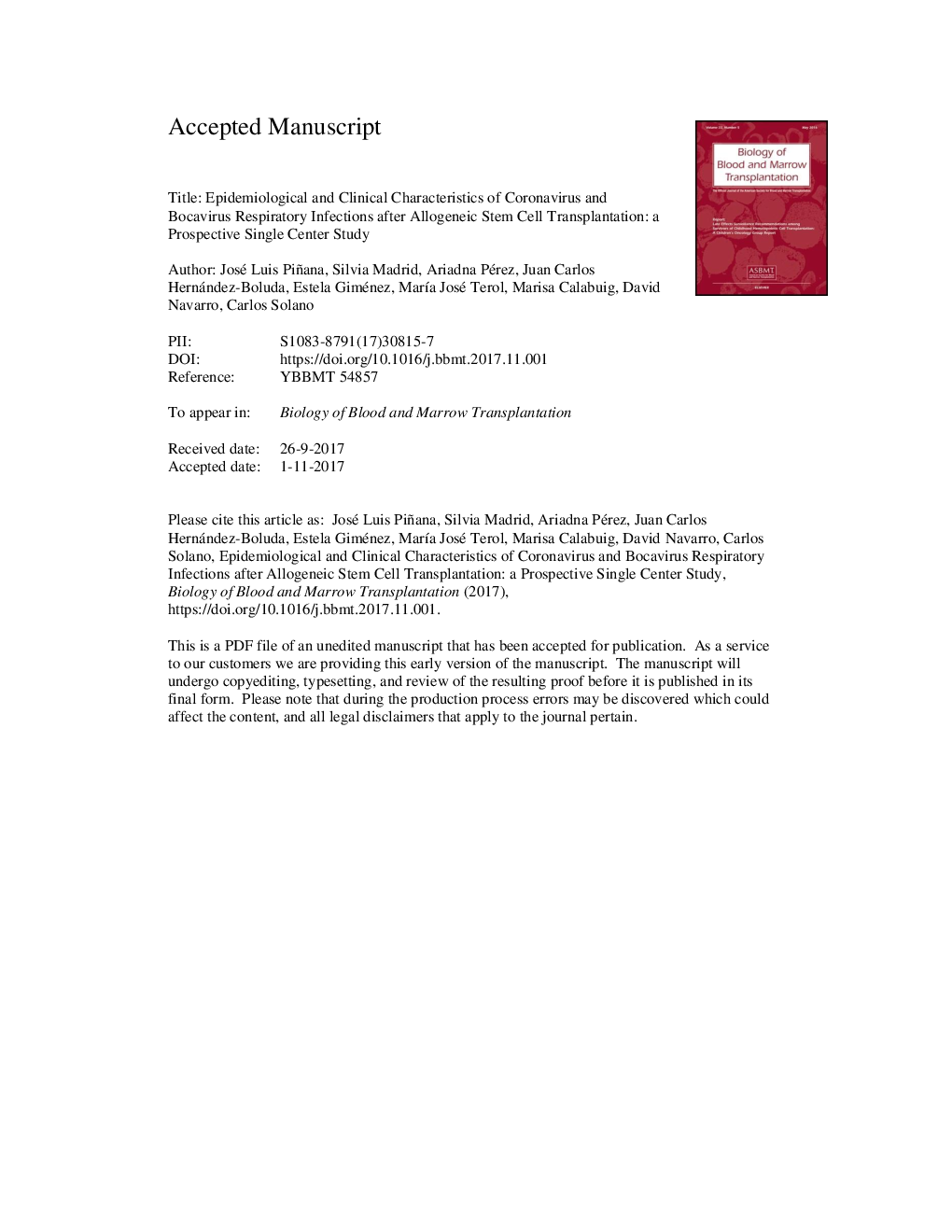| Article ID | Journal | Published Year | Pages | File Type |
|---|---|---|---|---|
| 8430112 | Biology of Blood and Marrow Transplantation | 2018 | 26 Pages |
Abstract
Epidemiologic data about coronaviruses (CoVs) and human bocavirus (HBoV) in the setting of allogeneic hematopoietic stem cell transplantation (allo-HSCT) are scarce. We conducted a prospective longitudinal study on respiratory viral infections (RVIs) in allo-HSCT recipients with respiratory symptoms from December 2013 until June 2016. Respiratory virus in upper and/or lower respiratory tract (URT and LRT) specimens were tested using Luminex xTAG RVP Fast v1 assay. Seventy-nine consecutive allo-HSCT recipients developed a total of 192 virologically documented RVI episodes over 30 months. The median follow-up after RVI was 388 days (range, 5 to 923). CoV or HBoV was detected in 27 of 192 episodes (14%); 18 of 79 recipients (23%) developed a total of 21 CoV RVI episodes, whereas 6 recipients (8%) had 1 HBoV RVI episode each. Fourteen CoV RVI episodes were limited to the URT, whereas 7 affected the LRT. Co-pathogens were detected in 8 (38%) CoV cases. Type OC43 CoV was the dominant type (48%) followed by NL63 (24%), KHU1 (19%), and 229E (9%); the CoV hospitalization rate was 19%, whereas mortality was 5% (1 patient without any other microbiologic documentation). Among the 6 recipients with HBoV (3%), only 1 had LRT involvement and no one died from respiratory failure. In 5 cases (83%) HBoV was detected along with other viral co-pathogens. CoV RVIs are common after allo-HSCT, and in a significant proportion of cases CoV progressed to LRT and showed moderate to severe clinical features. In contrast, HBoV RVIs were rare and mostly presented in the context of co-infections.
Keywords
Related Topics
Life Sciences
Biochemistry, Genetics and Molecular Biology
Cancer Research
Authors
José Luis Piñana, Silvia Madrid, Ariadna Pérez, Juan Carlos Hernández-Boluda, Estela Giménez, MarÃa José Terol, Marisa Calabuig, David Navarro, Carlos Solano,
